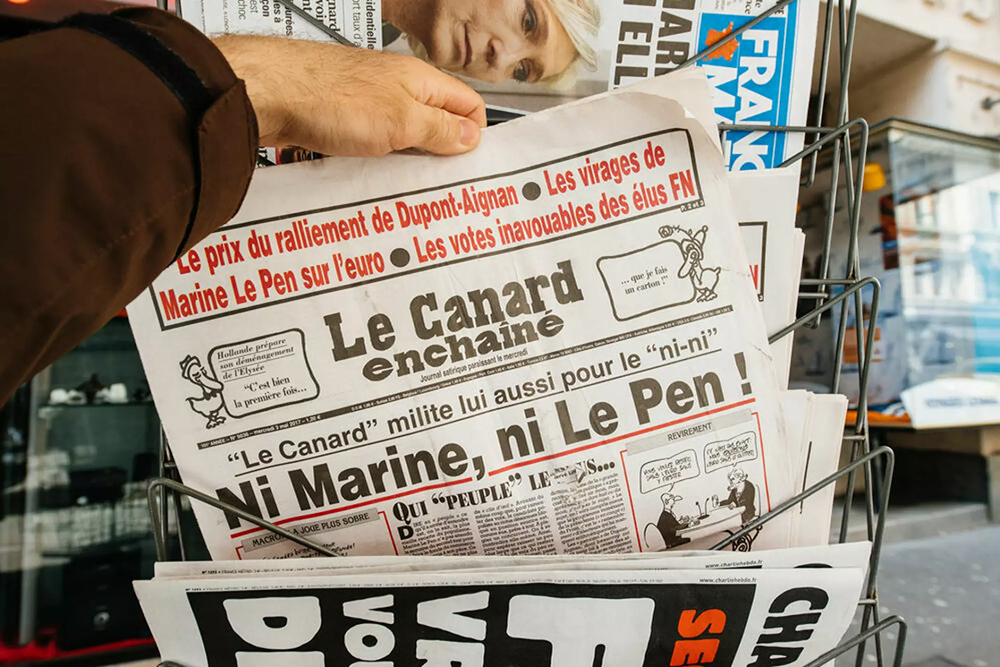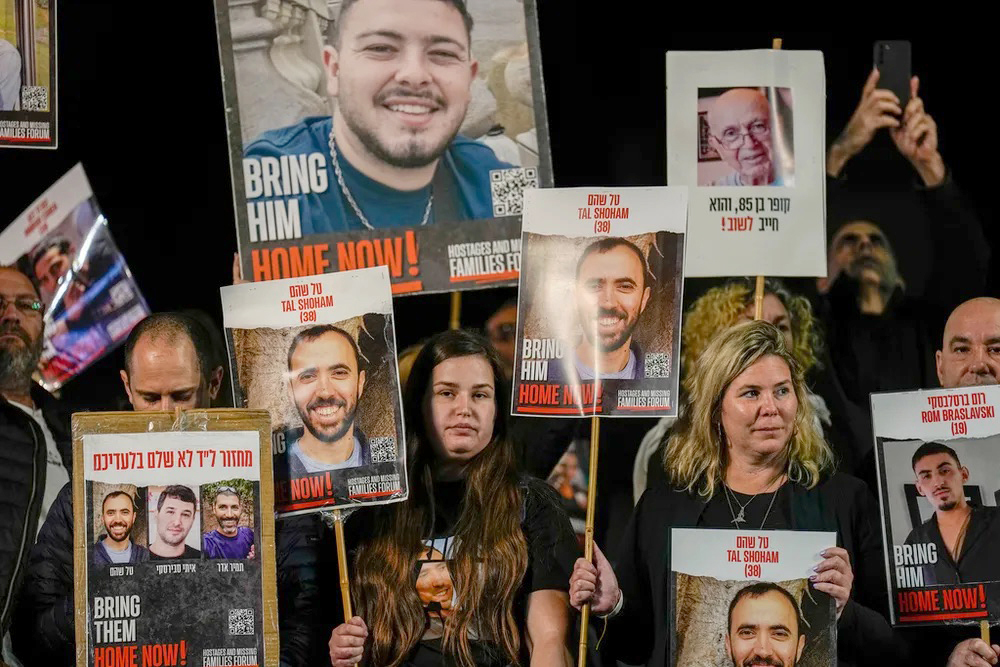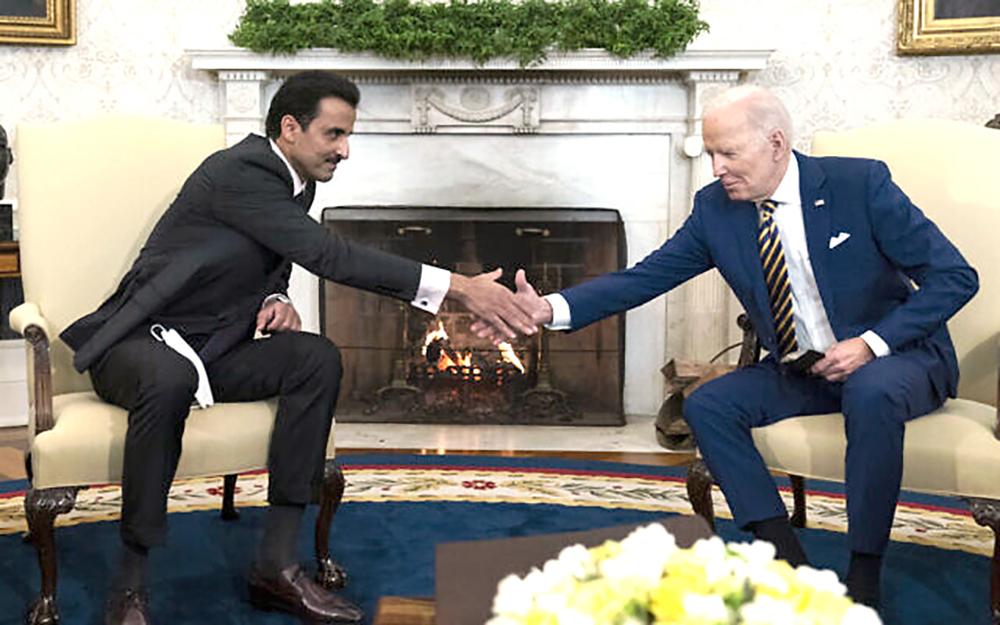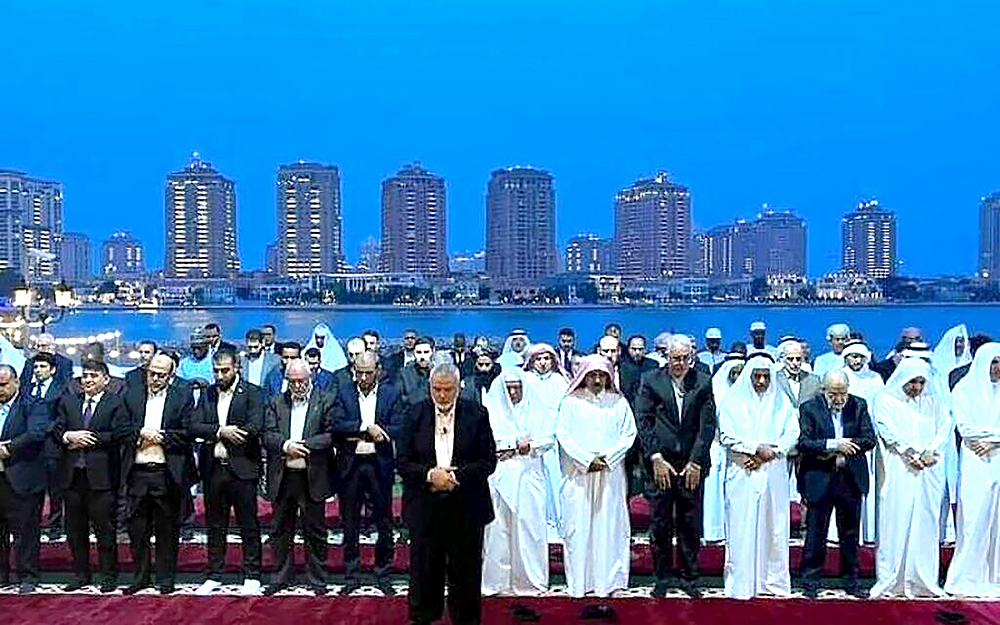|
Getting your Trinity Audio player ready...
|
Edited by: Fern Sidman
In a calculated move to address the ongoing conflict between Israel and Hamas in Gaza, President Joe Biden has embarked on a diplomatic initiative, reaching out to key regional players for assistance. On Friday, President Biden penned letters to the leaders of Qatar and Egypt, urging them to use their influence to broker a hostage deal with the Hamas terrorists, according to a senior administration official.
Simultaneously, in a bid to escalate diplomatic efforts, President Biden has deployed CIA Director William Burns to Cairo for talks that were held over the weekend specifically addressing the hostage crisis. The gathering is expected to include David Barnea, the head of Mossad, Israel’s intelligence agency, as well as negotiators from Qatar and Egypt. Notably, the AP reported that negotiations with Hamas are conducted indirectly, with proposals relayed through third parties to the Hamas terrorist leaders clandestinely sheltering in tunnels beneath Gaza.

In the conversation with Israeli Prime Minister Benjamin Netanyahu, Biden emphasized the necessity of exhausting all avenues to ensure the safe return of hostages and discussed empowering Israeli negotiators to facilitate a deal, as revealed by an official.
The proposed deal is outlined in phases, with the initial focus on securing the release of vulnerable groups such as women, the elderly, the sick, and the wounded. This prioritization reflects a concerted effort to alleviate the suffering of those held captive in dire circumstances.
Meanwhile, Qatar continues to play a double game with the United States. On the one hand, Qatar has served as a safe harbor for Hamas leaders who live in luxury hotels in Doha, and on the other hand Qatar claims that they are allied with US interests.
According to a December 2023 report by the Foundation for the Defense of Democracies, a Washington, DC-based nonpartisan research institute focusing on national security and foreign policy, Qatar has enabled the terrorist organization Hamas politically and financially for decades. However, the tiny Gulf Arab state has successfully positioned itself as the lead negotiator in the Hamas-Israel war despite its lack of neutrality and ongoing support for terrorism. In fact, Doha hosts key members of Hamas’s senior leadership and has given an estimated $1.8 billion to Gaza’s Hamas-run government. As a designated major non-NATO ally of the United States, Qatar’s ongoing support for Hamas raises overdue questions as to whether Washington should finally press the Gulf country to close Hamas offices, expel Hamas officials, and turn off the financial spigot.
The FDD report also detailed Qatar’s role in serving as a major financier of Hamas terrorism. The report stated that the former Emir of Qatar was the first world leader to visit Gaza after Hamas seized the territory by force in 2007. Sheikh Hamad, father of the current emir, visited the coastal enclave and pledged $400 million in support. Doha pledged $360 million of annual support to the enclave in January 2021, in part to subsidize government salaries. About a third of Qatari support is in the form of fuel that Hamas authorities sell for cash. Hamas also collects kickbacks from salaries and other aid flowing into Gaza.
Qatar’s foreign ministry released a statement on October 7th holding “Israel alone responsible” for Hamas’s bloody rampage, as was detailed in the FDD report. The ministry ignored Hamas’s war crimes and accused Israel of violating international law. After failing to condemn the 10/7 attack, Sheikh Tamim bin Hamad al-Thani, the Qatari emir, said on October 24 that “it is untenable for Israel to be given an unconditional green light and free license to kill.”
Ismail Haniyeh, the chief of Hamas’s political bureau, resides in Qatar, as do Khalil al-Hayya, head of Hamas’s communications office, and Khaled Mashal, Hamas’s former political chief and current head of the group’s diaspora office. The FDD report said that on October 13, 2023, Mashal called for a global “Day of Jihad,” encouraging the Muslim world to “head to the squares and streets” in support of the Palestinian cause. In Doha, Hamas leaders live in five-star hotels; Haniyeh and Mashal are reportedly worth over $4 billion each.
Moreover, the FDD report explained that Hamas opened a political office in Doha in 2012. Haniyeh currently serves as chief of the bureau. Sheikh Meshal bin Hamad al-Thani, Qatar’s ambassador to the United States, claims that Hamas set up its Doha office following “a request from Washington to establish indirect lines of communication with Hamas.” An Obama White House official said there was no request from Washington, but the administration did not oppose the move either. A spokesperson for the Qatari Foreign Ministry said on November 5 that Doha has “no reason to close” the office if it can facilitate diplomacy. On Capitol Hill, Doha has tried to block U.S. legislation recognizing the Gulf country as a Hamas financier.

The abundantly tendentious and agenda driven news outlet Al Jazeera is owned by the Qatari government and effectively functions as a media mouthpiece of the state. The network regularly lionizes the violent activities of Hamas, with particularly vitriolic coverage of the conflict during clashes with Israel, according to the FDD report. For years, Yusuf Qaradawi, the Muslim Brotherhood cleric who endorsed the tactic of suicide bombings, hosted a program on the channel. After the October 7 attack, the network broadcast Hamas military chief Mohammad Deif’s call to arms. Al Jazeera also aired incendiary statements from Ismail Haniyeh and his deputy, Saleh al-Arouri. Haniyeh appeared on Al Jazeera praising Hamas’s “great triumph” and calling on “the sons of this entire nation, in their various locations, to join this battle in any way they can.”
Further information provided in the FDD report indicated that following Israel’s unilateral withdrawal from the Gaza Strip in 2005, Hamas prevailed in the Palestinian elections in 2006. After a one-year stand-off with the ruling Fatah faction, Hamas fought a bloody civil war, executing some of its Fatah rivals by shoving them off buildings. Qatar sided with Hamas and endorsed its takeover of Gaza in 2007. It has provided political and financial assistance to the Islamist group in the years since while undermining the internationally recognized Palestinian Authority, which runs the West Bank.
The FDD report also pointed out that in November 2023, Qatari Prime Minister Mohammed bin Abdelrahman al-Thani said, “We have built relations with Hamas in order to maintain peace and stability in the region.” Yet contrary to the belief that Qatar could moderate Hamas and help stabilize the region, Doha’s support for Hamas has facilitated relentless violence. Under Qatari patronage, Hamas has fought five separate wars against Israel (2008, 2012, 2014, 2021, and 2023).
In June 2017, Saudi Arabia, the United Arab Emirates (UAE), Bahrain, and Egypt severed ties with Qatar and imposed a blockade on the Gulf nation. According to the information contained in the FDD report, Saudi Arabia said it cut ties to “protect national security from the dangers of terrorism and extremism,” while the UAE noted Qatar’s “ongoing policies that rattle the security and sovereignty of the region.” Both countries accused Doha of backing the Muslim Brotherhood, the Islamist group that gave rise to Hamas. Riyadh and Abu Dhabi also demanded that Qatar sever all ties to terrorist organizations, stop funding those organizations, curtail its close ties to Tehran, terminate the Turkish military presence in Qatar, and shut down Al Jazeera and other incendiary news outlets funded by Doha.
Contradictory as it may sound, despite its support for terrorism, Qatar has been named by the United States as a major non-NATO ally, with the country serving as a strategic hub for U.S. military operations in the Persian Gulf region, as per the FDD report. Located 18 miles southwest of Doha, Al-Udeid Air Force Base hosts an estimated 10,000 U.S. troops as well as CENTCOM Forward Headquarters, from which the U.S. launches air operations against Islamic State in Iraq and Syria. In addition, the United Kingdom’s Royal Air Force and other foreign forces are stationed at the base built by Qatar following the 1991 Operation Desert Storm.
In the middle of March, Fox News reported that at Qatar’s recently held defense exposition, known as the Doha International Maritime Defense Exhibition and Conference (DIMDEX), it provided a platform for countries with strained relations with the United States to showcase their military capabilities. While Qatar maintains defensive and strategic partnerships with the U.S., its openness to hosting nations hostile to American interests has sparked concerns about arms proliferation and potential implications for regional stability.
According to the information provided in the Fox News report, Matt McInnis, senior fellow for the Institute for the Study of War, acknowledged the gathering of “strange bedfellows” at such events, highlighting Qatar’s tendency to extend invitations to a wide range of countries.
“It’s not surprising that Qatar was inviting Iran, Russia, and other countries,” McInnis explained as he spoke with Fox News, shedding light on the eclectic mix of participants at the exposition. “So, this is, in many ways, typical for Qatar to be open to everyone.”
“The Islamic Republic of Iran, the world’s foremost state sponsor of terrorism and home to the largest ballistic missile arsenal in the Middle East, is working to sell its weapons to the world,” warned the Foundation for Defense of Democracies (FDD), as was reported by Fox News. The group highlighted the potential risks associated with Iran’s weapons sales and urged the U.S. to “take action to restrict Iran’s access to future weapons expos.*
Between November 20, 2022, and December 18, 2022, Qatar hosted the prestigious International Federation of Football Association (FIFA) World Cup soccer tournament. However, its hosting of this global event drew attention to its political and diplomatic ties, igniting both debate and criticism.
French satirical newspaper Le Canard Enchaîné added fuel to the fire in November 2022 when it published a controversial cartoon depicting Qatar’s football team carrying firearms and wearing explosive belts, reminiscent of terrorist imagery, as was indicated in the report on CounterExtremism.com. This cartoon highlighted the paradox that Qatar, as a U.S. ally, maintains relations with groups and countries the U.S. and other nations have accused of supporting terrorism such as Iran.
Qatar’s hosting of the FIFA World Cup also put its political associations under the spotlight. CounterExtremism.com reported that accusations of hosting members of Iran’s Islamic Revolutionary Guard Corps (IRGC), al-Qaeda, and the Taliban have further complicated its international image. In July 2021, the Department of State initiated an investigation into allegations of Qatari financial support for the IRGC as well as Hamas.

Other examples of Qatari influence can be found on college campuses across North America. Until recently, the issue of foreign donations influencing American academia remained unnoticed. However, a study published in 2022 by the National Association of Academics in the United States sheds light on a significant flow of Qatari money to universities in the country, particularly in the aftermath of the September 11 attacks. According to an in depth report that appeared on the Calcalistech.com web site in October 2023,the study reveals that between 2001 and 2021, Qatar donated a staggering $4.7 billion to American universities, making it the largest foreign donor during this period. What initially seemed like harmless financial support has sparked a series of events, raising concerns about the influence on academic institutions.
The study highlights the fact that a considerable portion of the funds received by American universities from Qatar went unreported, violating legal requirements, according to the Calcalisteceh.com report. This revelation adds a layer of complexity to the already controversial issue. The Qatari financial support, ostensibly meant to foster academic growth, has now come under scrutiny for potential undisclosed motives.
The turning point came after the Hamas attacks on October 7, unleashing an explosion of vehemently anti-Israel propaganda that was regularly broadcast by pro-Hamas student protesters. The serene atmosphere of academic institutions transformed into a battleground, with vile anti-Semitic sentiments taking center stage.
In October alone, countless campus protests erupted. Calcalistech.com reported that at Amherst University, anti-Israel students staged a riot that led to the arrest of 57 individuals after they took over the administration building. At Tulane University clashes erupted between Jewish students and a pro-Hamas group, escalating when the latter burned the Israeli flag during a demonstration.
At Cooper Union in New York City, Jewish students found themselves locked in the library for safety as pro-Hamas protesters violently confronted them. The report on the Calcalistech.com web site also said that at George Washington University, anti-Semitic messages projected on the library wall intensified concerns, with sentiments like “Free Palestine from the river to the sea” and “Glory to our martyrs.”
Qatar has found itself in a diplomatic tightrope, maintaining close military ties with the United States while facing accusations of supporting terrorist groups such as al-Qaeda and Hamas.
Having said this, it should be noted that prominent American universities, including Cornell, Georgetown, Northwestern, and Carnegie Mellon, received substantial funding from Qatar, leading to the establishment of branches in Doha. As was reported in the Calcalistech.com report, Cornell, a member of the Ivy League, opened a medical school with a staggering $1.8 billion donation from Qatar. Georgetown University was also a recipient of Qatar’s largess as they received $750 million for a school of government. Moreover, Northwestern established a journalism school with a $600 million donation from Qatar in 2007.
The significant share of donations comes from the Qatar Foundation, a non-profit organization established by the government in 1995 with the mission to promote education and science in the country, as was indicated in the Calcalistech.com report. While collaborations between nations and educational institutions are not uncommon in the era of globalization, the source and magnitude of Qatari donations raise unique concerns.





